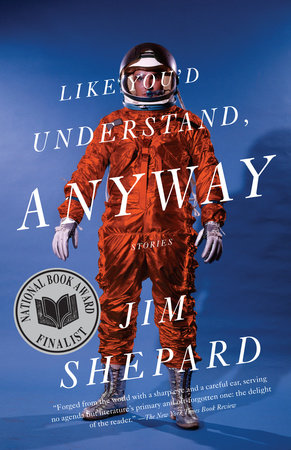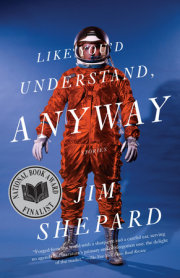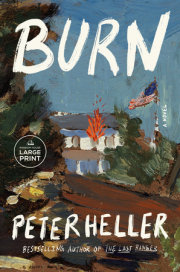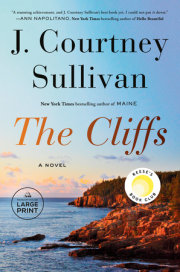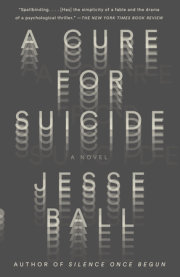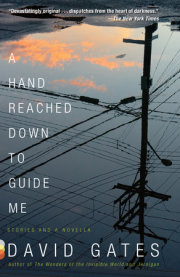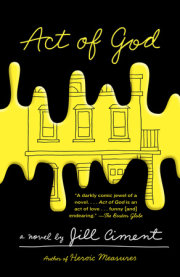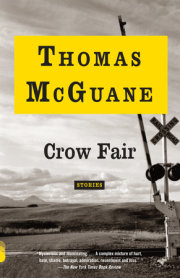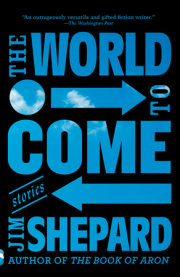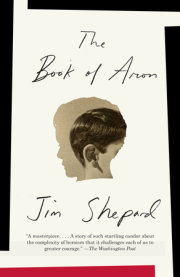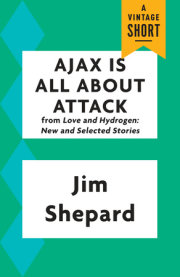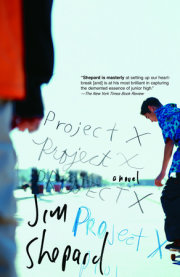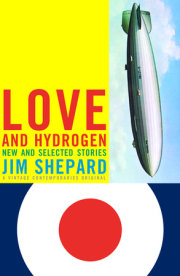Pleasure Boating in Lituya BayTwo and a half weeks after I was born, on July 9th, 1958, the plates that make up the Fairweather Range in the Alaskan panhandle apparently slipped twenty-one feet on either side of the Fairweather fault, the northern end of a major league instability that runs the length of North America. The thinking now is that the southwest side and bottom of the inlets at the head of Lituya Bay jolted upward and to the northwest, and the northeast shore and head of the bay jolted downward and to the southeast. One way or the other, the result registered 8.3 on the Richter scale.
The bay is T-shaped and seven miles long and two wide at the stem, and according to those who were there it went from a glassy smoothness to a full churn, a giant’s Jacuzzi. Next to it, mountains twelve to fifteen thousand feet high twisted into themselves and lurched in contrary directions. In Juneau, 122 miles to the southeast, people who’d turned in early were pitched from their beds. The shock waves wiped out bottom-dwelling marine life throughout the panhandle. In Seattle, a thousand miles away, the University of Washington’s seismograph needle was jarred completely off its graph. And meanwhile, back at the head of the bay, a spur of mountain and glacier the size of a half-mile-wide city park–forty million cubic yards in volume–broke off and dropped three thousand feet down the northeast cliff into the water.
This is all by way of saying that it was one of the greatest spasms, when it came to the release of destructive energy, in history. It happened around 10:16 p.m. At that latitude and time of year, still light out. There were three small boats anchored in the south end of the bay.
The rumbling from the earthquake generated vibrations that the occupants of the boats could feel on their skin like electric shock. The impact of the rockfall that followed made a sound like Canada exploding. There were two women, three men, and a seven-year-old boy in the three boats. They looked up to see a wave breaking
over the seventeen-hundred-foot-high southwest bank of Gilbert Inlet and heading for the opposite slope. What they were looking at was the largest wave ever recorded by human beings. It scythed off three-hundred-year-old pines and cedars and spruce, some of them with trunks three or four feet thick, along a trimline of 1,720 feet. That’s a wave crest 500 feet higher than the Empire State Building.
Fill your bathtub. Hold a football at shoulder height and drop it into the water. Imagine the height of the tub above the waterline to be two thousand feet. Scale the height of the initial splash up proportionately.
When I was two years old, my mother decided she’d had enough of my father and hunted down an old high school girlfriend who’d wandered so far west she’d taken a job teaching in a grammar school in Hawaii. The school was in a little town called Pepeekeo. All of this was told to me later by my mother’s older sister. My mother and I moved in with the friend, who lived in a little beach cottage on the north shore of the island near an old mill, Pepeekeo Mill. We were about twelve miles north of Hilo. This was in 1960.
The friend’s name was Chuck. Her real name was Charlotte something, but everyone apparently called her Chuck. My aunt had a photo she showed me of me playing in the sand with some breakers in the background. I’m wearing something that looks like overalls put on backward. Chuck’s drinking beer from a can.
And one morning Chuck woke my mother and me up and asked if we wanted to see a tidal wave. I don’t remember any of this. I was in pajamas and my mother put a robe on me and we trotted down the beach and looked around the point to the north. I told my mother I was scared and she said we’d go back to the house if the water got too high. We saw the ocean suck itself out to sea smoothly and quietly, and the muck of the sand and some flipping and turning white-bellied fish that had been left behind. Then we saw it come back, without any surf or real noise, like the tide coming in in time-lapse photography. It came past the hightide mark and just up to our toes. Then it receded again. “Some wave,” my mother told me. She lifted me up so I could see the end of it. Some older boys who lived on Mamalahoa Highway sprinted past us, chasing the water. They got way out, the mud spraying up behind their heels. And the water came back again, this time even smaller. The boys, as far out as they were, were still only up to their waists. We could hear how happy they sounded. Chuck told us the show was over, and we headed up the beach to the house. My mother wanted me to walk, but I wanted her to carry me. We heard a noise and when we turned we saw the third wave. It was already the size of the lighthouse out at Wailea. They’d gotten me into the cottage and halfway up the stairs to the second floor when the walls blew in. My mother managed to slide me onto a corner of the roof that was spinning half a foot above the water. Chuck went under and didn’t come up again. My mother was carried out to sea, still hanging on to me and the roof chunk. She’d broken her hip and bitten through her lower lip. We were picked up later that day by a little boat near Honohina.
She was never the same after that, my aunt told me. This was maybe by way of explaining why I’d been put up for adoption a few months later. My mother had gone to teach somewhere in Alaska. Somewhere away from the coast, my aunt added with a smile. She pretended she didn’t know exactly where. I’d been left with the Franciscan Sisters at the Catholic orphanage in Kahili. On the day of my graduation, one of the sisters who’d taken an interest in me grabbed both of my shoulders and shook me and said, “What is it you
want? What’s the
matter with you?” They weren’t bad questions, as far as I was concerned.
I saw my aunt that once, the year before college. My fiancée, many years later, asked if we were going to invite her to the wedding, and then later that night said, “I guess you’re not going to answer, huh?”
Sans FarineMy father, Jean-Baptiste Sanson, had christened in the church of Saint-Laurent two children: a daughter, who married Pierre Hérisson, executioner of Melun, and a son, myself. After my mother’s death he remarried, his second wife from a family of executioners in the province of Touraine. Together they produced twelve children, eight of whom survived, six of whom were boys. All six eventually registered in the public rolls as executioners, my half brothers beginning their careers by assisting their father and then myself in the city of Paris.
My name is Charles-Henri Sanson, known to many throughout this city as the Keystone of the Revolution, and known to the rabble as Sans Farine, in reference to my use of emptied bran sacks to hold the severed heads. I was named for Charles Sanson, former adventurer and soldier of the King and until 1668 executioner of Cherbourg and Caudebec-en-Caux. My father claimed he was descended from Sanson de Longval and that our family coat of arms derived from either the First or Second Crusade. Its escutcheon represents another play on our name: a cracked bell and the motto
San son: without sound.
You want to know–all France wants to know–what takes place in the executioner’s mind: the figure who before the Revolution wielded the double-bladed axe and double-handed sword and who branded, burned, and broke on the wheel all who came before him. The figure who now slides heads through what they call the Republican Window on the guillotine. Does he eat? Does he sleep? Do his smiles freeze the blood? Is he kind to those he kills? Does he touch his wife on days he works? Does he reach for you with blood-rimmed fingernails? Did he spring full-blown from a black pit to send batch after batch through the guillotine?
Becoming shrill, my wife calls it, whenever I get too agitated in my own defense.
“What struck people’s minds above all else,” Livy, the great Roman, wrote in his
History on Brutus’s sacrifice of his own sons for the good of the Republic, “is that his function as consul imposed on the father the task of punishing his sons, and that his unbendingness compelled him personally to order the execution, the very sight of which was not spared him.” In Guérin’s rendering of the scene, the hero turns away but does not blanch. Standing before it in the old Royal Academy with Anne-Marie, I told her that perhaps this is the way we attain the sublime: by our fierce devotion to the required. She was not able to agree.
I am a good Catholic. The people’s judges hand out their sentences, and mine is the task of insuring that their words become incarnate. I am the instrument, and it is justice that strikes. I feel the same remorse as anyone required to be present at an execution.
Before the Revolution, justice was apportioned and discharged in the name of the King, who ruled by divine right as one of God’s implements. Punishment of malefactors was God’s will and therefore earned for his sovereign minister God’s grace and esteem. But in the eyes of most, that grace and esteem did not extend as far as the sovereign’s handservant. Before the Revolution, daughters of executioners were forbidden to marry outside the profession. When their girls came of age, such families had to display on their doors a yellow affidavit clarifying the family’s trade, and acknowledging the taint in their bloodline. Letters of commission and payments were not passed into their hands but dropped before them. They were required to live at the southern ends of towns, and their houses had to be painted red.
Before the Revolution, a woman with whom I dined at an inn demanded I be made to appear in court to apologize for having shared with her a dinner table. She petitioned that executioners be directed to wear a particular badge or color upon their coats or singlets so that all would know their profession. Before the Revolution, our children were allowed no playmates but one another.
For lunch today there was egg soup with lemon juice and broth, cock’s comb, a marrowbone, chicken fried in bread crumbs, jelly, apricots, bread, and fennel comfits. Clearing the table, Anne-Marie reminisced about a holiday we took when the children were small. When she speaks to me, she holds the family before us like a pleasing little stove. At first she was able to treat this terrible time as a brigand unable to trespass upon the better world she bore within.
With children, everything and nothing registers. My earliest memory is of the house outside Paris, and the height of the manure pile, and the muck dropped by the household geese. I remember flies whenever one went outside. I remember my mother’s calm voice and associate it with needlework. She was fond of saying that I had no ideas of grandeur and that she would wish that to continue. My grandmother always chided me for losing even a crumb of my bread, since, as she put it, I couldn’t make for myself even that. My father was a quiet man who, when it came to my understanding the world, resolved that his little boy should become a person capable of self-sufficiency, so he allowed me to negotiate my own passage through that household. I was perceived to be headstrong but inhibited. I was sent away at an early age and then pitched from school to school, since the moment my classmates uncovered my family’s profession, life became unbearable again. I wrote my mother a series of supplications outlining my misery and pleading for a response. In a cheerless chapel in a school in Rouen—my fourth in as many years—I received my father’s letter informing me of her death.
He remarried; the house was repopulated with half brothers and sisters; I stayed away at my schools. I matured into a beanstalk whose expressions excited pity on the street. My teachers knew me as dutiful, alert, frugal, and friendless: a nonentity with ambitions. I was often cold and known for my petitions to sit nearer the room’s hearth. I volunteered for small errands so that in solitude I might gather the strength to face the rest of the day. I wrote to myself in my notebooks that I felt my bleak present within me and ached to my bones with wondering if loneliness would always be the measure of my days.
Anne-Marie was a market gardener’s daughter in Montmartre, her father’s establishment a luncheon stop on my infrequent visits home from school. She was his eldest, born the same day as myself, and when we first conversed I imagined that we had loved each other from that date, unawares.
Her first act in my presence was to scratch at a rash on her foot until chided by her father entering the room with the roast. She visited the water closet, and back at the table returned my gaze as if examining a distant coastline. She was still chewing a bit of carrot. From that first meeting I have perched perpetually, in a kind of dreamy distress, on the very edge of relieving my longings. Her lovely large mouth and deep-set eyes with their veiled expression, and her child’s posture have been my harbor and receding horizon. Her seat, that first luncheon, was in the sun, and her skin was so fine I could see the circulation of her blood. When she blushed, I could feel the warmth.
Copyright © 2007 by Jim Shepard. All rights reserved. No part of this excerpt may be reproduced or reprinted without permission in writing from the publisher.

